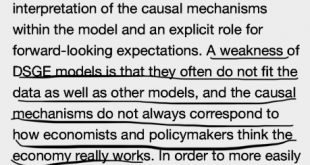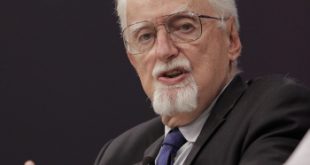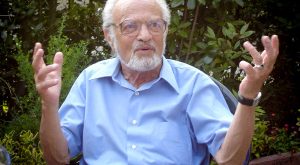MMT — Die Lösung liegt in höheren Staatsausgaben Der deutsche Staat hat sein Konto, das „Zentralkonto des Bundes“, bei der Deutschen Bundesbank. Sie „zahlt“ für ihn, wobei sie auf Rechnung des Finanzministeriums handelt. „Finanzieren“ kann sich die deutsche Bundesregierung durch die Ausgabe von Staatsanleihen, die bei einer Laufzeit von zehn Jahren quasi zum Nullzins ausgegeben werden können. „Finanzieren“ kann sie sich im Unterschied zu den Vereinigten...
Read More »DSGE models are consistent. And totally useless!
DSGE models are consistent. And totally useless! Thanks to JW Mason for directing us to this ‘interesting’ piece from Reserve Bank of Australia.
Read More »IPA’s weekly links
Pick up your own 5-HTTLPR gene research summary shirt on etsy.Guest post by Jeff Mosenkis of Innovations for Poverty Action IPA’s looking for a Director of Poverty Measurement. In particular the job involves overseeing the Poverty Probability Index, a short, country-specific tool practitioners use to estimate poverty rates, and developing new non-monetary measures (requires strong quant background). Please share with anybody who might be interested.How the government of Odisha, one of...
Read More »Axel Leijonhufvud — the road not taken
Axel Leijonhufvud — the road not taken The orthodox Keynesianism of the time did have a theoretical explanation for recessions and depressions. Proponents saw the economy as a self-regulating machine in which individual decisions typically lead to a situation of full employment and healthy growth. The primary reason for periods of recession and depression was because wages did not fall quickly enough. If wages could fall rapidly and extensively enough, then...
Read More »Modern economics is sick
Modern economics is sick Modern economics is sick. Economics has increasingly become an intellectual game played for its own sake and not for its practical consequences for understanding the economic world. Economists have converted the subject into a sort of social mathematics in which analytical rigour is everything and practical relevance is nothing … If there is such a thing as “original sin” in economic methodology, it is the worship of the idol of...
Read More »The Fallacy of the Natural Rate of Interest and Zero Lower Bound Economics: Why Negative Interest Rates May not Remedy Keynesian Unemployment
This paper provides a critique of zero lower bound (ZLB) economics which has become the new orthodoxy for explaining stagnation. ZLB economics is an extension of pre-Keynesian economics which attributes macroeconomic dysfunction to rigidities and market imperfections. The ZLB is the latest rigidity in that pre-Keynesian tradition. The paper argues negative nominal interest rates, even […]
Read More »Nationalekonomins frågor
Emellanåt kommer det även i vårt lilla land ut ekonomiböcker som ställer intressanta frågor. Det är inte ofta, men därför också så mycket roligare när det väl händer. I boken Nationalekonomins frågor (Studentlitteratur, 2017) finns flera intressanta bidrag som behandlar relevanta och intressanta samhällsvetenskapliga problem — de i mitt tycke mest givande är de som handlar om teoritestning (kap 2), effektutvärdering (kap 3), kvinnors lönediskriminering (kap 7), skolval och...
Read More »Amen Hayr Surb
[embedded content]
Read More »Ten years after the crash — what have we learned?
Ten years after the crash — what have we learned? [embedded content]
Read More »Post-Keynesian perspectives on growth and distribution
Post-Keynesian perspectives on growth and distribution [embedded content]
Read More » Heterodox
Heterodox






